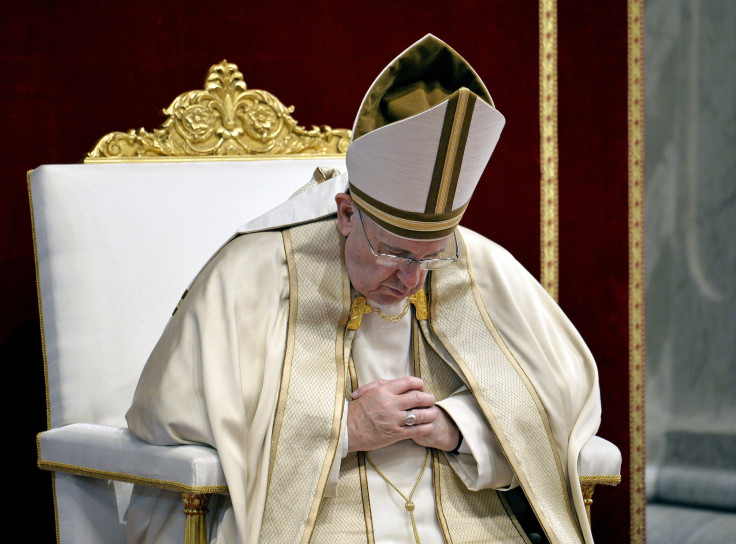Pope Francis ‘Abortion Pardons’: In Year Of Mercy, A Strategic Move To Win Back Lapsed Catholics

The Vatican’s announcement Tuesday that all priests will have the authority to absolve Catholics of abortion is making big news in advance of the pope’s visit to the United States. But experts agree that while the move is not a deviation from Catholic doctrine, it is consistent with Pope Francis’ tenure as a pontiff who is trying to expand the inclusiveness of the church.
“While not changing the church's teaching on the immorality of abortion, Francis wants to communicate loudly and clearly that God's mercy is available to all, even for this sin, which the church has so stridently opposed,” said Vincent Miller, professor of Catholic theology at the University of Dayton in Ohio.
Pope Francis: SSPX priests shall "validly and licitly" absolve from sins during Year of Mercy, especially abortion pic.twitter.com/OiWbaGVy2k
— Father Kevin Cusick (@MCITLFrAphorism) September 1, 2015The Roman Catholic Church considers abortion a “grave sin” -- one that automatically excommunicates the sinner from the church. Traditionally, only bishops have had the authority to absolve those who seek forgiveness for it. The new policy, however, allows all priests the ability to offer forgiveness to those who express contrition during the coming Jubilee Year of Mercy, which begins Dec. 8.
Curbing A Steep Decline
But the new policy -- which was announced only for the Year of Mercy but could become permanent, according to some Vatican experts -- is also a strategic move on the part of the pope, whose unofficial mandate has also been to stem the exodus of Catholics leaving the church, particularly in Latin America.
“This new policy is a combination of him being the Pope of Mercy and also being a master stategist of enacting policies that will return lapsed Catholics to the fold,” said Andrew Chesnut, chair in Catholic studies at Virginia Commonwealth University.
Latin America, which is home to 40 percent of the world’s Catholics but has been facing a steep decline in those affiliated with the church, also has the world’s highest rate of abortion. Chesnut said the Pope’s move is part of an effort to “build a more inclusive church and bring some of those lapsed Catholics back. Presumably there have been a lot of women, particularly in Latin America, who have been alienated by the church because of aboortion.”
Chesnut expects that some American bishops, who have focused on the fight to make abortion illegal in the United States, may not be pleased with the new policy, even if it doesn’t actually alter church doctrine.
But other Vatican experts disagree. John Cavadini, professor of theology at Notre Dame, said the media is overplaying the significance of Tuesday’s announcement.
“The change is pastoral, not doctrinal,” he said. “It’s intended to emphasize the church as an agent of mercy rather than an agent of condemnation. The pope is making it easier to get access to confession to this sin, but all the regular conditions still apply. You still have to be sorry for all your sins, and you still must have a firm purpose of amendment.”
Cavadini added that most Catholic churches in the U.S. already emphasize the opportunity for forgiveness, even for abortion.
“The media thinks this is a hugely controversial thing, and it’s not at all. I just don’t think the mainstream pro-life Catholic community will have any objection to this. Walk into any Catholic church, and you’ll usually find a poster that reads, ‘Hurting after an abortion?’ and offers guidance on seeking forgiveness,” said Cavadini.
The Vatican itself echoed a similar sentiment to reporters in an email about the announcement on Tuesday.
“Forgiveness of the sin of abortion does not condone abortion nor minimize its grave effects,” the Vatican’s press office said in an email statement. “The fact that this statement is coming from the pope and in such a moving, pastoral way, is more evidence of the great pastoral approach and concern of Pope Francis.”
© Copyright IBTimes 2024. All rights reserved.





















